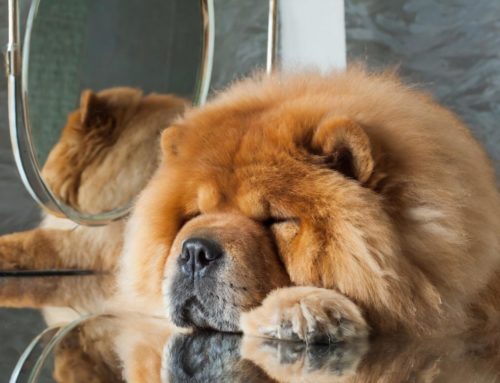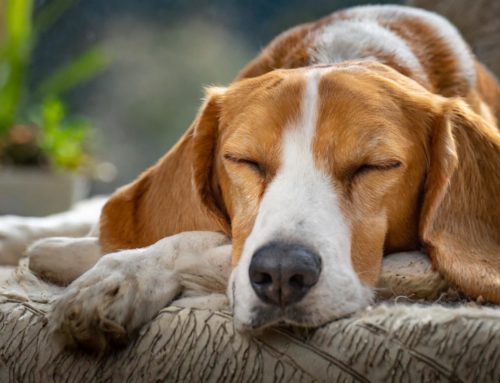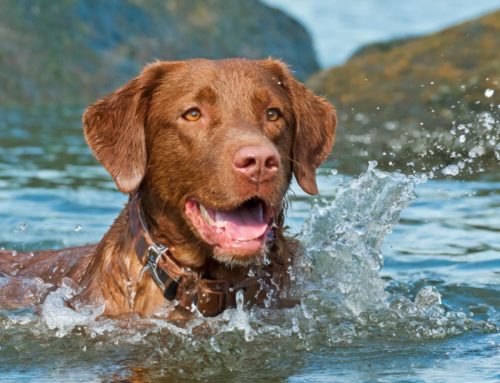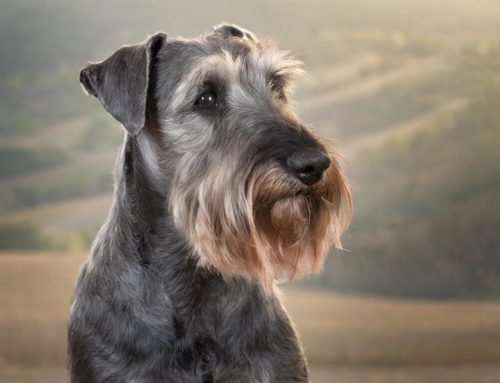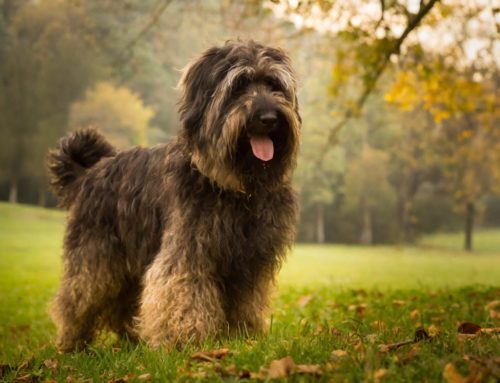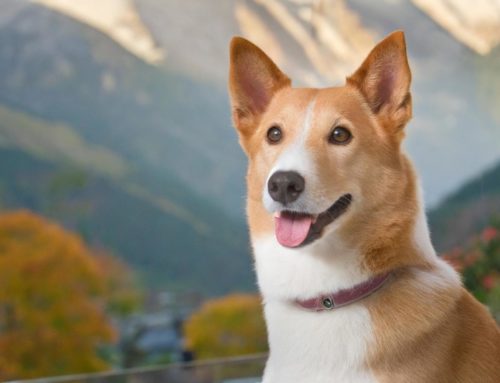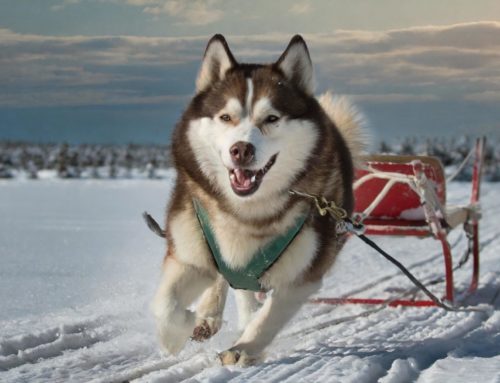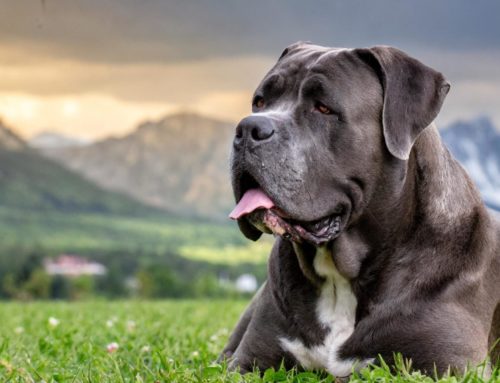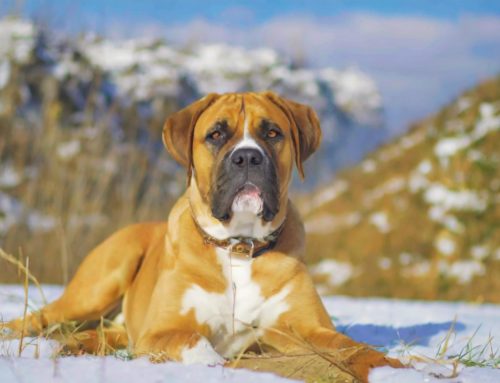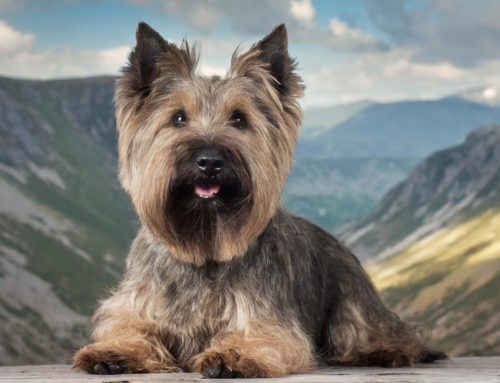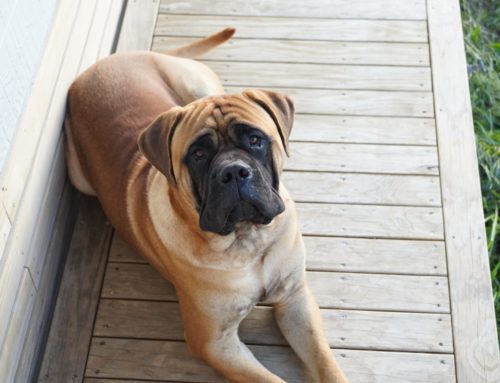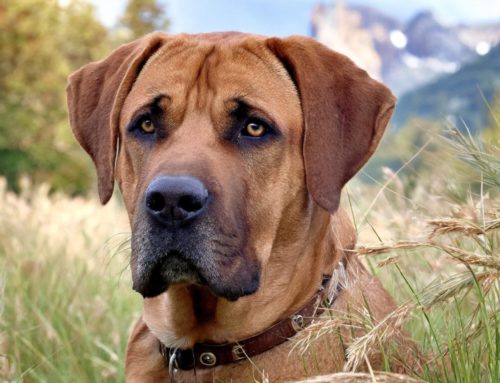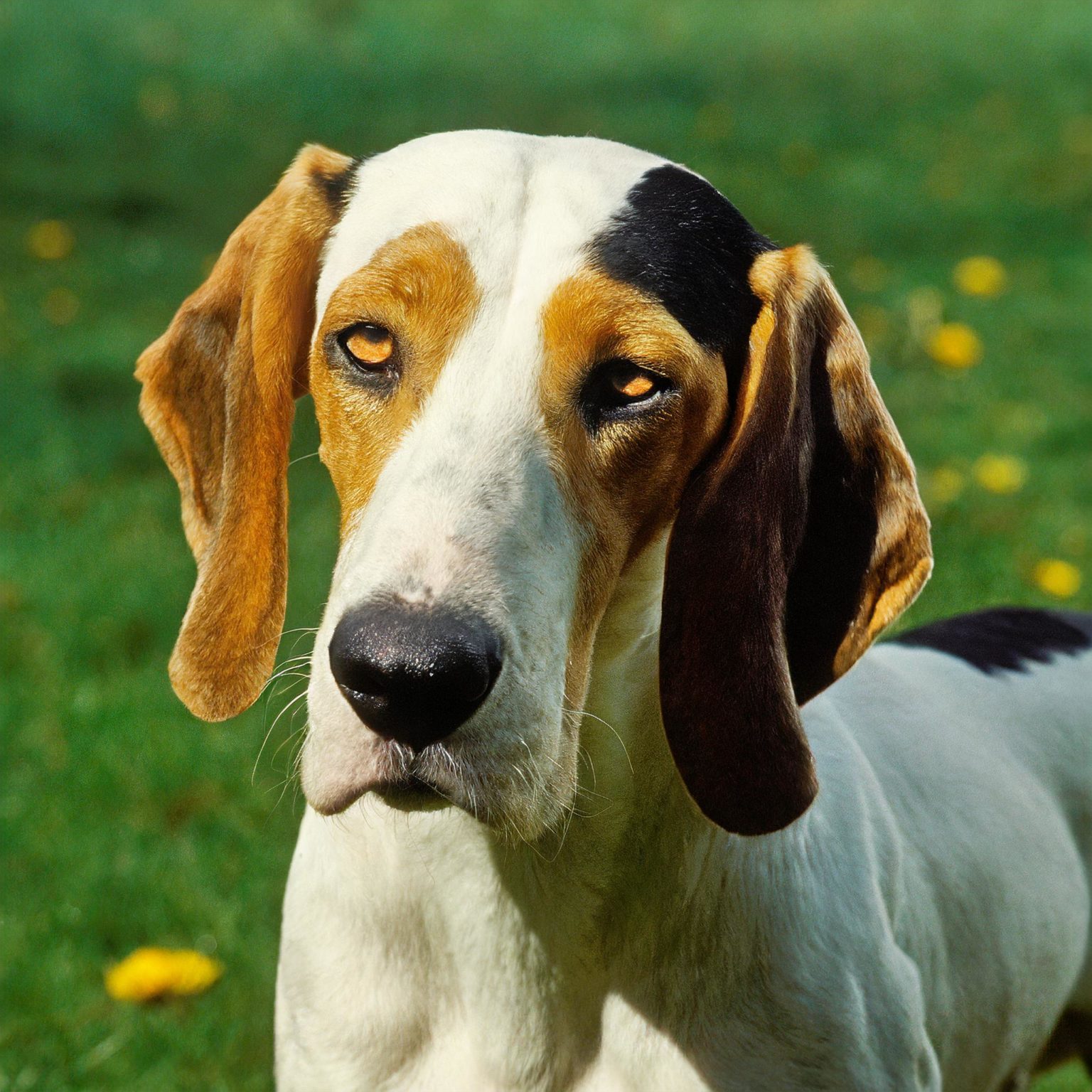
The Ariégeois, a medium-sized hunting dog native to south-western France, specifically the Ariège department, has a rich and fascinating history.
This breed originated from a cross between the Bleu de Gascogne, the Gascon Saintongeois and the Chien d’Artois. This mixing of breeds took place around 1912, with breeders aiming for a dog that was both skilled at hunting and affectionate in nature.
The Ariégeois, also known as the Chien de Briquet, was originally bred for hunting hares and wild boars, thanks to its excellent voice and tenacity.
With its keen sense of smell and fine nose, excellent for tracking game, the Ariégeois soon found a place among France’s renowned hunting dogs. This breed is particularly at home on the dry and rocky terrain of southern France.
Although the Ariégeois was traditionally a working dog, the breed has transitioned to a companion dog, thanks in part to its affectionate nature and ability to socialise well.
The appearance of the Ariégeois
The Ariégeois, a dog breed with a distinctive appearance. Created from the crossing of several breeds, including the Grand Bleu de Gascogne and the Gascon-Saintongeois, this breed has an athletic build, suitable for hunting hares and wild boars in the rocky and dry terrain of southern France.
Also known as a harehound, the Ariégeois is known for its short, white coat with black markings and sometimes black spots, especially around the cheeks and above the eyes. These markings give it a unique and distinctive look. The dog has a slightly arched, flat back and well-developed loins, which contributes to its agility and stamina during hunting.
With a shoulder height of 50 to 60 centimetres on average and a weight of around 25 to 30 kilograms, the Ariégeois combines strength with agility. Its ears are set low and hang next to the head, which is typical of many scent hounds. These dogs are known for their excellent nose and tenacity when hunting, staying focused and showing initiative.
Hereditary diseases and disorders
The Ariégeois, is generally a healthy dog. However, as with all dog breeds, there are some hereditary diseases and disorders for which the Ariégeois may be predisposed. These include:
- Hip dysplasia: A common condition in medium and large dog breeds, in which the hip joint is not formed properly, which can lead to arthritis and pain.
- Ear infections: Because of their drooping ears, Ariégeois are more prone to ear infections, which should be checked and cleaned regularly.
- Allergies: This breed can be prone to certain allergies, which can cause skin problems or digestive problems.
- Eye diseases: Such as cataracts and progressive retinal atrophy (PRA), which can affect vision.
- Epilepsy: A neurological condition that can lead to seizures.
- Heart disease: Such as congenital heart defects or heart failure, which can affect the dog’s health and well-being.
The character of the Ariégeois
A French hunting dog, the Ariégeois is known for its tenacious and focused nature, especially when hunting. This breed specialises in tracking deer, wild boar, and especially hares, where its concentration and initiative are crucial.
As a pack dog, the Ariégeois is also adept at retrieving and works well with other dogs, which can be seen in its harmonious association with breeds such as the Grand Gascon-Saintongeois and the Grand Bleu de Gascogne. The Ariégeois is easy to raise and responds well to consistent training and socialisation.
Its background as a working dog means it needs plenty of exercise and mental stimulation to stay happy and healthy. At home in the rocky terrain of southern France, this breed originated from crosses between several French and possibly pre-Roman hunting dogs, such as the Braque de l’Ariège and the Beagle.
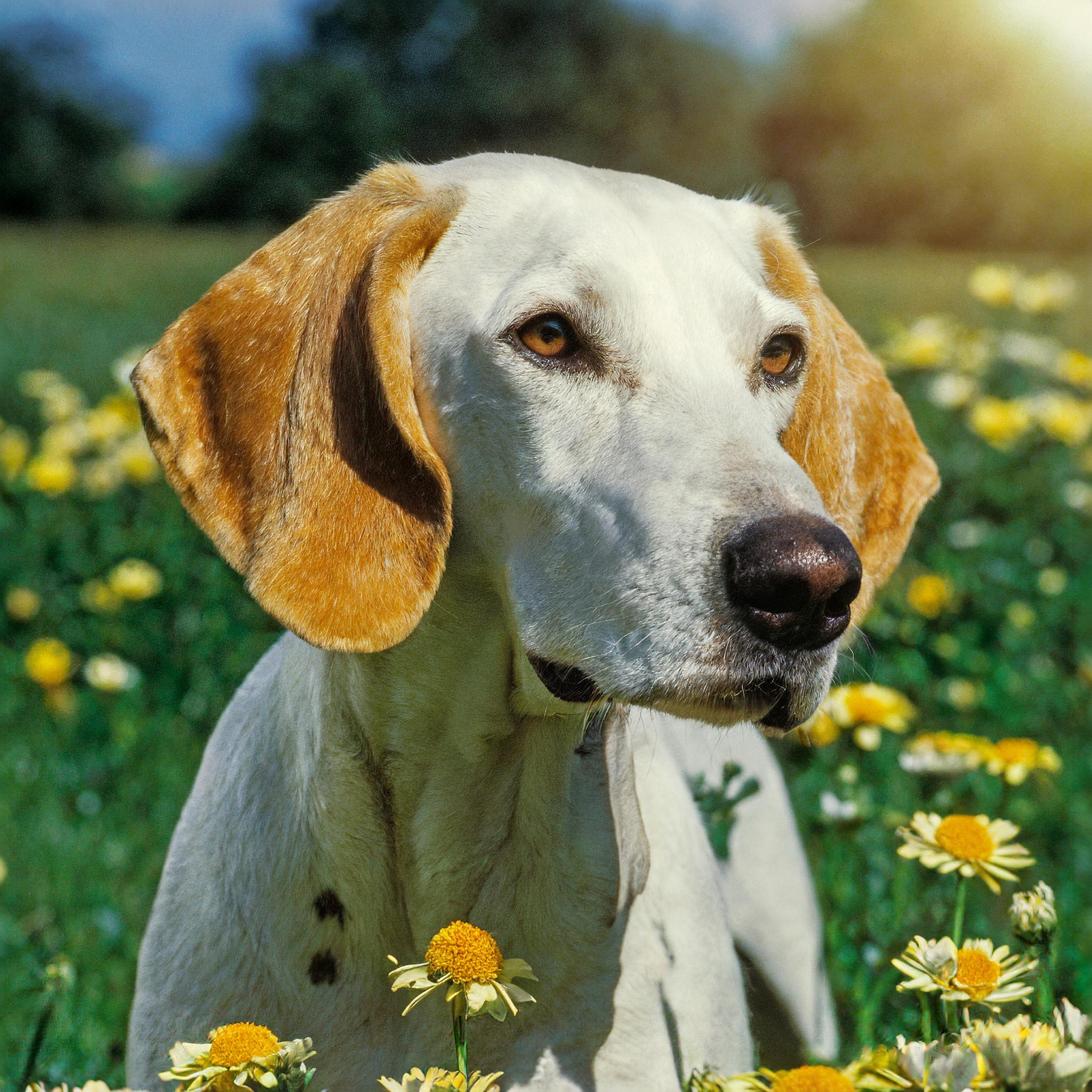
The Care of the Ariégeois
The Ariégeois, a medium-sized French hunting dog, requires a specific grooming routine. This dog, specialises in tracking and therefore needs a lot of exercise.
This is especially important as it is at home on the rocky terrain of France and its ancestors, such as the Grand Gascon Saintongeois and the Grand Bleu de Gascogne, were also active hunting dogs. The Ariégeois’ coat is short and slightly curved, requiring regular brushing to remove loose hairs and keep the skin healthy.
A diet enriched with omega-3s can help keep its coat shiny and healthy. It is essential to pay attention to his ears, which can be prone to infection, especially given their sabre-shaped, slightly curved shape.
As the Ariégeois originated from the mixing of different breeds and is used in various hunting scenarios, including deer hunting, it requires an environment where it can exercise its natural hunting instincts.
This breed is not only an excellent hunter, but also a loyal companion that enjoys interaction with its owner and needs the right balance of activity and rest. Dog lovers appreciate the Ariégeois for its tenacity, intelligence and ability to stay focused while hunting.
Socialisation and upbringing of the Ariégeois
The Ariégeois, a breed that originated in France and stems from the crossing of several French hunting dogs, including the Grand Bleu de Gascogne and other gundogs, requires careful socialisation and upbringing.
Specialising in hunting hare and used to track deer and wild boar, this small hound is naturally tenacious and focused when hunting. It is crucial to socialise the Ariégeois from an early age, especially given its background as a working animal and its role in pack hunts.
A consistent and patient upbringing helps to manage its natural hunting instincts. This breed can be prone to ear infections due to its short, sabre-shaped ears, so regular checking and cleaning are important. Training should focus on obedience and teaching commands, given his ability to stay focused and his tenacity while working.
Despite its smaller size, weighing around 28 to 30 kilograms, the Ariégeois is an active dog that needs plenty of exercise. With proper training and socialisation, the Ariégeois can be a great addition to any household, true to its heritage as an efficient hunter and loving companion.
How much experience does an Ariégeois require
Owning an Ariégeois, a dog breed best known for its hunting skills, requires a certain amount of dog experience.
Originating in France and used for hunting game such as hares and wild boars, this small hunting dog is specialised and tenacious. Their heritage dates back to the time of the Phoenicians, indicating a deep-rooted hunting tradition. This breed, with its characteristic sabre-shaped tail and flat flank, has a long history associated with hunting.
The Ariégeois is able to concentrate and show initiative while hunting, traits that indicate their intelligence and need for mental stimulation. For owners outside France, or unfamiliar with working dogs like the Ariégeois, raising this breed can be more challenging.
Proper socialisation and training are essential, especially as this breed naturally has hunting instincts. The Ariégeois can be a good family dog, provided it is well raised and led by an experienced owner. Knowledge of dog breeds and experience with training and socialisation are therefore important for future Ariégeois owners.
Is training necessary?
Training is absolutely necessary for the Ariégeois, a dog breed with a deep-rooted hunting instinct and a history of specialization in hunting. These small hunting dogs, known for their tenacity and concentration while hunting, require consistent and disciplined training to manage their natural abilities.
Because of their background in tracking game, including hares and wild boars, Ariégeois dogs have a strong tendency to hunt and follow. Training helps them master these instincts and ensures they behave well in a domestic environment.
This is especially important for owners outside of France, where the breed is native and where their hunting skills are traditionally used. Socialization is also an essential part of training an Ariégeois. It enables the dog to be comfortable in different environments and to get along well with other dogs and people.
A well-trained and socialized Ariégeois is not only a more efficient hunting dog, but also a fine and reliable companion dog.
How much exercise does an Ariégeois need?
The Ariégeois, needs considerable exercise to stay healthy and happy. Their history as hunting dogs means they have a natural need for plenty of exercise and mental stimulation.
An Ariégeois needs several long walks or jogs daily, as well as plenty of playtime and opportunity to explore. They thrive on activities that appeal to both their physical and mental abilities, such as fetch games or agility training.
It is also advisable to let them run loose regularly in a safe, fenced area where they can expend their energy. These dogs are not only physically active, but also intelligent and tenacious. Therefore, mental stimulation is just as important as physical exercise.
Puzzle toys, scent-finding games and training sessions can help keep their minds sharp. If an Ariégeois does not get enough exercise, they can quickly become bored and engage in destructive behavior.
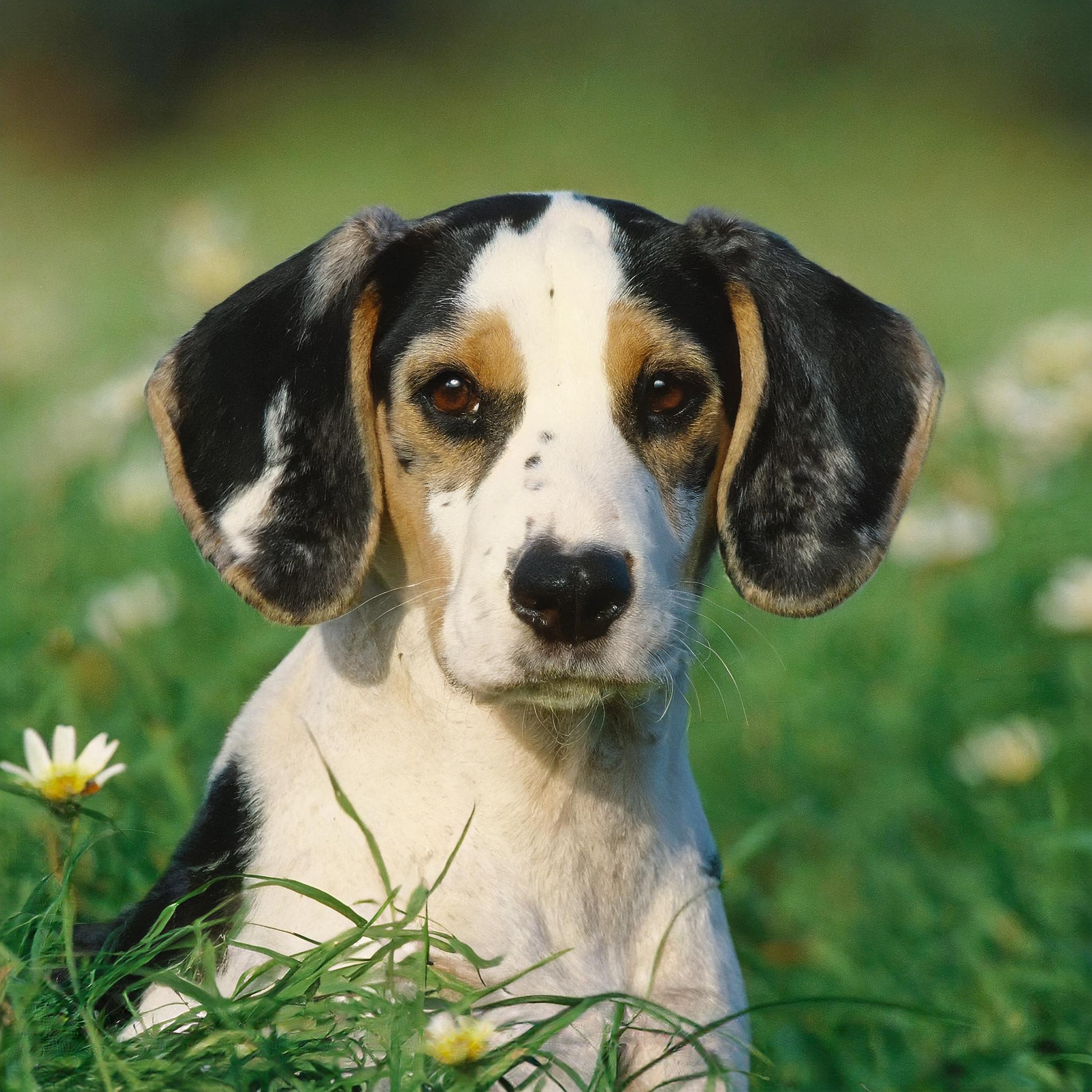
How is it getting along with children?
The Ariégeois is known for its affectionate and friendly nature, which makes it an excellent companion dog for families with children. This breed, shows remarkable gentleness and patience when dealing with children. Their playful and gentle nature makes them ideal playmates for children.
Despite their hunting instinct, Ariégeois dogs are generally not aggressive. They are often tolerant and understanding, even when dealing with the unpredictable nature of young children. However, as with all dogs, it is important that interactions between children and Ariégeois are supervised, especially if the dog is not yet fully socialised or trained.
These dogs need a gentle but firm upbringing, with early socialisation being crucial. Introducing an Ariégeois puppy to different people and situations will contribute to their development into well-adjusted adult dogs.
Advantages of an Ariégeois
- Affectionate and Friendly: The Ariégeois is known for its affectionate and friendly nature, especially towards family members.
- Good Hunting Ability: Because of their origins as hunting dogs, they are excellent at tracking scents and have a strong hunting instinct.
- Intelligent and Trainable: These dogs are intelligent and can be trained relatively easily, which is especially useful for hunting and outdoor activities.
- Good with Children: They are known for their patience and tolerance towards children, which makes them a good choice for families.
Disadvantages of an Ariégeois
- Exercise requirements: Ariégeois dogs require regular and sufficient exercise, which can be challenging for those with less active lifestyles.
- Hunting instinct: Their strong hunting instinct can be a problem in areas with lots of wildlife, where they may be prone to chasing.
- Socialisation Needed: Early socialisation is essential to avoid timid or distrustful behaviour towards strangers and other animals.
- Health Problems: Like many dog breeds, they can be prone to certain hereditary health problems, such as hip dysplasia.
How old an Ariégeois gets
The Ariégeois, a medium-sized dog breed, has a relatively good life expectancy, typical for dogs of its size.
On average, these dogs can live between 10 and 14 years. Of course, this lifespan can vary depending on several factors, including genetics, general health care, nutrition and living conditions.
Price of an Ariégeois
The Ariégeois, a breed not commonly found in the US, presents challenges in setting a precise price range. Here’s an outline of what to expect:
Price: Given their scarcity, the cost for an Ariégeois could potentially surpass $3,000, contingent upon locating a breeder.
Locating an Ariégeois:
- Breeders: It may prove difficult to find US breeders with a focus on Ariégeois due to their rarity.
- Rescue: The chances of discovering an Ariégeois through US-based rescue organizations are slim.
Similar Breeds Worth Considering:
For admirers of the Ariégeois’s medium size and hound characteristics, the following breeds available in the US might appeal:
- Beagle: Cheerful and companionable hounds noted for their keen sense of smell, with prices generally between $600 and $1,200.
- Basset Hound: Known for their gentle disposition and iconic long ears, typically priced between $800 and $1,500.
- Harrier: A breed bred for stamina and hunting agility, with prices ranging from $800 to $2,000.
- English Foxhound: Esteemed for their endurance in hunting, generally priced from $800 to $2,000.
These alternatives possess comparable qualities and are more accessible.
Further Guidance:
- In-depth Research: Verify that a hound breed’s personality and requirements suit your lifestyle before committing.
- Adoption Consideration: Numerous remarkable dogs find themselves in rescues or shelters. Opting to adopt a hound or mixed breed could be rewarding.
- Budgeting for Ownership: Anticipate costs for food, healthcare, grooming, training, and other essentials beyond the purchase price.
- Importance of Socialization: Given hounds’ propensity to trail scents and become distracted, early socialization and consistent training are essential.
Remember: Choosing a pet demands long-term dedication. Selecting a breed that complements your lifestyle is crucial. Exploring breed clubs or registries for breeder information is an option, though be ready for potential obstacles in sourcing an Ariégeois in the US. Adoption offers a meaningful alternative, potentially leading you to a hound or mixed breed that ideally matches your family’s lifestyle.
